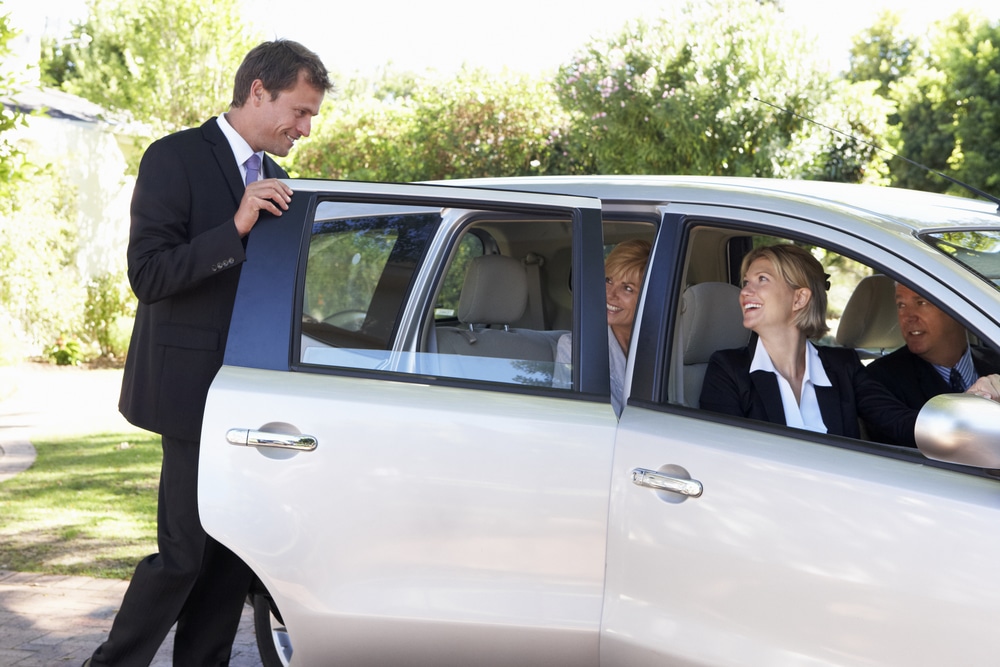Jasmine Birtles
Your money-making expert. Financial journalist, TV and radio personality.


Can you really save money by sharing?
Sharing is a fundamental social tool we learn from a young age. We are taught to share our toys, play nicely and help others. For many, this ethos carries over into our adult life. Here at MoneyMagpie, we believe sharing is something we should all do, especially in such unprecedented times.
Sharing in a time when we are all struggling is important for many reasons. We are all in the same boat, with the cost-of-living crisis and rising energy costs hitting us hard. Not only is sharing a kind thing to do, but helping your friends, family and neighbours and supporting each other in any way we can is more important than ever.
Helping one another and sharing what we can, may be the reason someone has food on the table, a roof over their head or a way to get to their place of work. Not only could it help others, but you could save money by sharing, too. In some circumstances, it could even make you a little extra money.
Here are some of our favourite ways to save money by sharing.

Car sharing has always been a favourite amongst colleagues as a means to save money. With the cost of fuel skyrocketing in the last few months, ride sharing to work, to the supermarket and even to places of worship could save you plenty of money on fuel.
The more people you can get in on the sharing, the better. Sharing between two of you will halve your fuel costs when it comes to trips to work. But finding a group of four or five of you could split your costs even more and save you all a bucketload on petrol costs.
Say there are five of you in a group, who all work at the same place. If you work a Monday to Friday week, you could all take it in turns to drive to and from work one day a week. As if by magic, you go from driving to and from work five days a week to one day a week. 10 journeys a week are slashed to just two. Your fuel costs are cut by 80%.
There is more to car sharing than just ride sharing. Our founder and CEO Jasmine Birtles got rid of her car three years ago, as she lives in the middle of town and rarely used it. However, if she does need a car from time to time, she borrows her friend’s car. Jasmine pays her friend £25 per day she uses her car and pays for the petrol she uses.
Jasmine pays to put herself on her friend’s insurance whenever she uses the car. Not only is this useful for when she needs to drive somewhere for a longer journey, but it saves her hundreds, if not thousands of pounds a year on the cost of having her own car. She saves money on insurance, fuel costs, road tax and more. Plus, the money she pays her friend helps her to pay for the costs of having the car.
When Jasmine did have her own car, she did the same for her other friends. She would lend her car to her Mum and other friends here and there, whenever they needed it. If they put themselves on the insurance and paid for the petrol they used, Jasmine let them use it.
It’s a bit of give and take and saves Jasmine money whilst making her friend a little extra to help out with costs. It’s win, win scenario.

At a time when many are having to choose between heating and eating, sharing food may just help people more than you may think.
Another way to save money by sharing is to grow your own food. If you are lucky enough to have a garden, why not grow fruit, vegetables and herbs. Besides the planting and picking of your crops, it is a relatively effort-free way to utilise the space in your garden. You will need to water your plants a few times a week, but aside from this, there is very little upkeep.
Not only will growing your own food save you money on grocery shopping, but sharing any excess with friends, family and neighbours is an extremely valuable thing to do. Vegetables such as courgettes, tomatoes and potatoes are easy to grow and produce a plethora of crops, enough to feed a small army! Salad greens, radishes and beetroot are also great additions to your garden, and you will find you have a great volume of produce which you can share with others.
If your neighbours have been fed and are happy, if you still have leftover produce, you could list it on a food sharing app. Olio is a free-to-use sharing app, where people can share food and other household items with people in their area. Not only does it help fight food waste but provides much needed food to those who need it. There are other groups fighting hard to battle food waste, which you may be able to contribute to also.
If you don’t have a big garden or only have a small yard, patio or balcony, don’t fear! Growing produce in growbags is a great space saving way to grow goodies from tomatoes to runner beans and more. If you have no outside space, consider growing herbs on your kitchen windowsill, or even small tubs of cress, lettuces and radishes, which you can do from your kitchen and share.
Although sharing is caring, you could always display your produce outside your front door, at the end of your driveway or in your front garden and pop a donation pot next to your produce. People can then donate what they can, even if just a few pence. This won’t leave you rolling in cash, but could reimburse the cost of the seeds used, for example.
There are other ways to make money from your garden, including renting your garden out as allotments.
You may be going away on holiday soon. But what will you do with all that fresh produce in your fridge? Bin it? No way! Step away from the bin and consider giving it away.
You have a whole, unopened tub of delicious vanilla yogurt, but it is going off in a few days and you don’t think you will use it before you go. You have a punnet of tomatoes which are slightly squishy, but still edible, and half a loaf of bread which won’t make it for much longer. Knock on your neighbour’s door and offer them the lot.
Sure, you could bin it. You could even freeze some of it. But there’s nothing better than helping out those around you. Particularly those who are vulnerable or may not easily be able to leave their homes due to illness or immobility. You don’t know what different your kindness could make to them.
If you get a food shop delivered to your house regularly, but find you never quite need enough to reach the £40 basket minimum most shops have in place, why not share the shop with a friend or neighbour?
There are many reasons you may not be able to get out to the supermarket, but don’t want to keep overspending in order to reach the minimum spend. Save yourself some cash by splitting it with the family next door, your colleague who lives a few streets away or even a flatmate if you live with others. Plus, you can split the extortionate delivery costs – as much as £7.50 at some supermarkets!
Similarly, you may do a click and collect order regularly. If this is a common occurrence for you, why not see if a friend wants to do a regular click and collect order with you? Take it in turns to pick up the order, and you have saved yourself some fuel. If you get one click and collect order a week, 52 weeks a year, you’d now only have to make 26 journeys, saving you some serious money over time. The little savings can be the most important ones!

There are lots of great ways in which you can share your home to both save and make money. Our favourite ways to make and save money from your home are renting out your spare room and house swapping respectively.
Renting out your spare room and getting a lodger is something we always suggest at MoneyMagpie. It’s an easy way to receive regular passive income. If you have a spare room, why not list it online for someone to rent out? You can choose the sort of person you would like to take, for example if you’d like a specific age or gender of person.
SpareRoom is the leading website to find a lodger online. Not only is safety their top priority, for both renters and landlords, but they provide plenty of information for landlords about tax, tenancy agreements, insurance and more.
Take good, clear photos of your spare room, upload them and watch the interest pour in. You can show people the room in person, if they are local, or video call them if not. Not only will they be able to get a feel for you, your home and the room you are letting out, but you can decide whether you think they will be a good fit for you.
The good thing about having a lodger is you don’t have to feed them, do their laundry or tend to them. They will most likely keep to themselves and go about their daily life. You may find you get on with them like a house on fire and enjoy having them about the home.
If you aren’t keen on having someone living with you constantly but want to make money from your spare bedroom where possible, you may even consider hosting foreign students. It can be a very rewarding experience for both parties. The student will get to experience your culture, language and way of life. You will get to learn all about them and where they are from.
Some students may stay for a week or two, whereas some may need lodgings for a few months at a time. With foreign students, however, it is likely you will be asked to cook meals for them, make packed lunches, have mealtimes together, do their laundry and more. The whole point of them coming to stay is to improve their English, so it is imperative you interact with them to help them develop.
Our frugal columnist Jane, from popular blog Shoestring Cottage has hosted foreign students previously, and currently has a lodger:

“I have made extra income by renting out my spare room over many years. I started by hosting foreign language students for a few weeks at a time. This was a lot of fun and I met interesting people from all over the world. After a while I decided to take on a full-time lodger and have had five so far. They have all been very friendly and respectful and, although they make their own food and live their own lives, they become part of the family while they are with us, even joining in with Christmas celebrations. To rent your room out successfully, you have to be flexible, friendly and easy going. I always want my guests to feel totally at home and I think they appreciate this. I see it as a kind of job – after all, they are paying me money each month!”
If sharing your spare room sounds like something you’d like to do, you may also be interested in renting out your home as a film set, renting out your driveway or garage or making money from your outbuilding.
House swapping is a fun way to share your home, in a way both you and the other party involved can benefit. It’s just another way our founder Jasmine Birtles saves money by sharing. She’s gone to the USA and France! If you’ve seen the Kate Winslet and Cameron Diaz 2003 classic The Holiday, you may have some idea of what house swapping is.
House swapping is exactly what it sounds like. You exchange your house or flat with someone for a few days, weeks or even months. They can enjoy everything your home has to offer while you enjoy theirs.
This saves you money because you are getting your accommodation for free! All you need to do is pay for your transport, food and any activities you do. It’s a super cheap way to travel abroad, but you can even house swap within the UK if you’d like.
Our own Magpie Izzy used to go on house swap holidays growing up:

“My fondest holiday memories are from house swapping holidays. We would house swap to France almost every year. Not only did it save my family loads of money, but we used to get the Euro Tunnel there rather than flying, making it even cheaper. Because of this, we’d also have our car there, so saved money on transport during our stay. I used to love staying in other people’s houses, getting a feel for their life and culture living in France. I’d play French games, watch their French DVDs and more. It was always amazing and something I treasure to this day.”
You can read our full article on house swapping here.

Head Magpie Jasmine also shares chores with her neighbours. She and her neighbour often help each other out in this respect. Jasmine will look after her neighbour’s young daughter for a few hours every so often. In exchange, her neighbour may do a bit of ironing or cleaning for Jasmine.
This is mutually beneficial for the pair. Jasmine’s neighbour saves serious money on childcare in the school holidays. If she pops to the shop, Jasmine will happily take her daughter for an hour or two. In return, Jasmine saves money on a cleaner and precious time after a busy day.
Perhaps your friend or neighbour has a particular skill you don’t have. Perhaps you have a leaky pipe which causes your tap in the kitchen to drip continuously. Luckily you know a plumber, who could sort this issue in seconds. Why not offer to take their dogs for a walk, in exchange for them fixing the dripping tap? Or offer free childcare for a few hours so they can relax? The possibilities are endless.
Or you could formalise your local network of ‘sharers’ by setting up a LETS system. A LETS is a Local Exchange and Trading System (https://www.letslinkuk.net/) where local people exchange goods or services without spending any money. You usually do it as a system of points so you get points for doing a few hours of something for someone else or for handing something over to them and then you can use those points to get goods or services from other people in the network. Worth a look and, you never know, it might work in your local area.

“The only way we’re going to survive the next few, inflationary years is to share and support each other. We can’t do it on our own. I do think it’s important to share tools, food, time, cars and anything else we can think of as it means that more of us get to have what we need while paying less.”
Do you have any ideas on how to save money by sharing? Leave them in the comments below!
